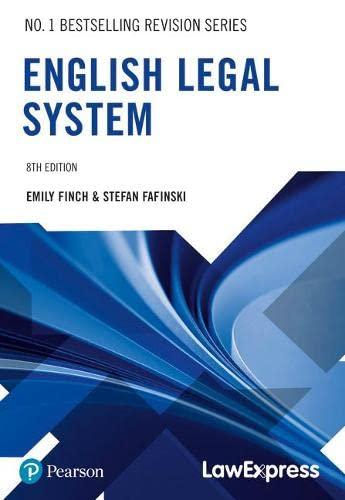Question
How would you use IRAC to explain why the information asked in an interrogatory is within scope of discovery? Here's what I have so far,
How would you use IRAC to explain why the information asked in an interrogatory is within scope of discovery? Here's what I have so far, but something seems off.
Issue: Is the information requested within the scope of discovery?
Rule: Federal Rule of Civil Procedure 33(a) which covers interrogatories states:
Unless otherwise stipulated or ordered by the court, a party may serve on any other party no more than 25 written interrogatories, including all discrete subparts. Leave to serve additional interrogatories may be granted to the extent consistent withRule 26(b)(1) and (2), which provides guidelines for proceedings exempt from initial disclosure requirements.
An interrogatory may relate to any matter that may be inquired into underRule 26(b). An interrogatory is not objectionable merely because it asks for an opinion or contention that relates to fact or the application of law to fact, but the court may order that the interrogatory need not be answered until designated discovery is complete, or until a pretrial conference or some other time.
Analysis: Interrogatories are written questions that one party sends to another. They can seek any of the information that is generally discoverable under Rule 26; that is, any information that is not privileged, is relevant to any claim or defense, and that is not an unreasonable burdensome request relative to the needs of the party.Here, the interrogatory is seeking response to .... which
Conclusion: The information sought falls within scope of discovery.
Step by Step Solution
There are 3 Steps involved in it
Step: 1

Get Instant Access to Expert-Tailored Solutions
See step-by-step solutions with expert insights and AI powered tools for academic success
Step: 2

Step: 3

Ace Your Homework with AI
Get the answers you need in no time with our AI-driven, step-by-step assistance
Get Started


